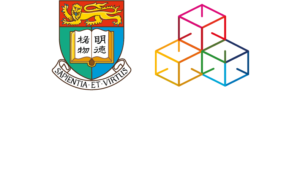Mr. Stephen Tam
Director of Quality Assurance, Opharmic Technology Hong Kong
Alumni Profile
What are the key differences in your perception when someone expresses interest in ‘studying ESG’ versus ‘learning about sustainability’ and its potential impact on their career path?
In my field, things are really connected. So when people talk about sustainability, they would say it is a holistic concept that we need to consider. When we drill down a bit more, we find the interesting thing is that people will say, “Why not just do environmental stuff?” I think that is something that is still missing in the industry. So that’s why I am trying to introduce some strategic planning in our company, things like life cycle analysis, to really get an idea of how my product can help society. Because for sustainability, I will always educate my team by saying, “People, planet, and prosperity.” For my industry, doing medical technology, developing technology to help patients is a key element for “people.” When we talk about sustainability with our upstream partners, we tell them that we are contributing to UNSDG number 3: well-being. Moving forward, sustainability will be a very common language across all companies, across all industries.
What are your thoughts on how the dialogue and terminology in the ESG and sustainability space are changing in response to some of the backlash? Does this trend discourage you?
When I talk with people, they say yes, the general direction is that we should be a more sustainable society, but somehow throughout human history, there are bumps along the road. But I think as long as the direction is a generally accepted direction with scientific evidence that this is the way to go. Education is definitely a thing we should continue with, but also how to influence the people around us and how to influence policymakers to really stand strong. As long as the direction is good, we are doing the right thing.
What key message would you give to an employer regarding hiring sustainability talent?
In my industry, we are inventing something new in the world. I always talk to my team and say you need to be open-minded and to see new things and learn new things. Try to educate yourself and influence others so that you bring a bigger impact, not only within yourself but also within the company, and also outside the company. Something I think this programme is very good at, and a crucial characteristic and attribute for sustainability practitioners, is doing things to make a big impact not only within that small community and team but also influencing other people to make a bigger impact.
What is one key observation or one major takeaway that participants typically report from the program?
People, planet, and prosperity are the three words that really amazed me after graduation. This is my third master’s programme, and this programme really helped me try to connect different things. Previously, I got an engineering and business degree, and now sustainability. I would say this programme is really connecting things naturally and puts things in context, like trying to put the technical side together with the business side and how to make a bigger impact. This new information that I learned from the programme really helped me to make better decisions by considering, again, those three words: people, planet, and prosperity.
Who would you say the programme is most suitable for?
I would say this programme is suitable for people who would like to be a change agent for the company with confidence. It is a very solid programme for professionals who want to expand their impact on society.


